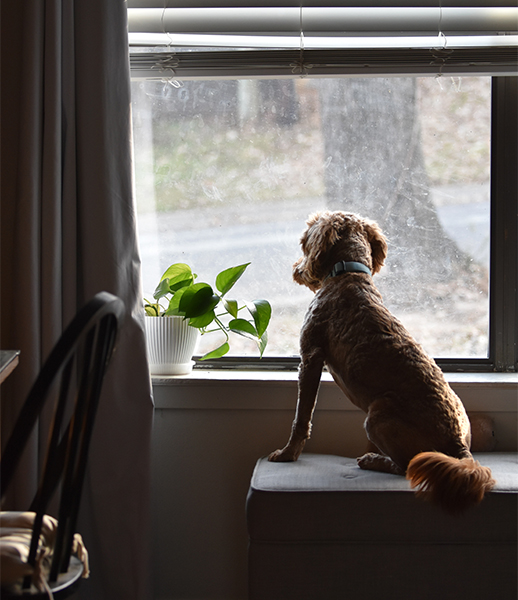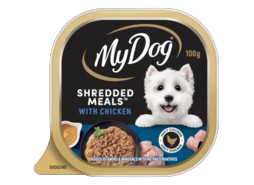- Home
- Why Your Dog Howls & What to Do


Photo by Lesli Whitecotton
Why Your Dog Howls & What to Do
Howling is just one of the many sounds our furry friends like to make. While some dogs will howl loudly and frequently, and others are more reserved, most of our pooches will howl at one point or another. So, why do dogs howl and what does it mean? It turns out they do it to communicate with you and the world around them. By understanding more about why your pup howls, you can become better attuned to their needs and how they’re feeling.
What is howling?
Howling is a vocalisation that dogs have inherited from their wolf ancestors. You can recognise a howl as a long, drawn-out sound that’s a bit like a singer holding a note.
What does howling mean?
Dogs howl for a number of different reasons, and it's not always easy to determine what their howling means. Sometimes they might do it in response to sounds they hear or to get attention, whereas other times they might howl to mark their territory or to let others know their whereabouts. The context and your dog's body language can help you decipher the meaning behind their howling.
Why do dogs howl?
Some of the common reasons dogs howl are anxiety, distress, and to communicate. By understanding the reason your pooch is howling, you’ll be able to decide whether you need to intervene or not.
Separation anxiety
Sometimes a dog might howl if they’re feeling anxious, specifically if they’re experiencing separation anxiety. Our furry friends associate their humans with safety and security, so when you leave them, they can feel vulnerable, alone, or scared. For this reason, you may find that your dog howls more when you’re away from them or when they’re in a new environment.
Medical issues
In some cases, howling can be a sign that your pooch isn’t feeling well or is in pain. A few medical issues that can cause your dog to howl include, ear infections, dental problems, and arthritis, due to the discomfort they cause. If you’ve noticed your pooch howling more than usual, take them for a check-up with your vet, so any underlying medical issues can be addressed.
Response to sounds
Dogs have a keen sense of hearing and likely want to respond to certain sounds, like sirens or other dogs howling or barking. For example, your pooch might howl back to another dog howling in the area, as a means of communicating with them.
To get attention
Your pup might howl to get your attention, which can be a sign of boredom, a lack of exercise, or that they need to go outside for a toilet break. By making sure your furry friend gets sufficient exercise and playtime, you can reduce the likelihood of them howling for attention. Also, be careful that you don’t reinforce a howling habit by ignoring it or responding in a positive way. By adopting the appropriate training techniques, you can effectively nip the behaviour in the bud.
What to do about excessive howling
Excessive howling can be a nuisance for both you and your neighbours, so if your dog is making it a habit, there are a few things you can do to help manage the problem:
- Provide lots of exercise and mental stimulation throughout the day,
- Work on training your dog to be comfortable when left alone,
- Consider crate training your dog to give them a safe and secure place to retreat to,
- Use white noise or calming music to help your dog relax and,
- If all else fails, speak to your vet or a professional dog trainer for further advice.
Understanding why your dog howls can help build a better relationship with your furry friend. While howling is a normal behaviour, excessive howling could be a sign of an underlying issue, so it's best to identify the root cause so you can address it. For more tips on how to keep your dog happy and healthy, check out our blog.
© 2023 Mars or Affiliates.
Buy online
Click to buy from any of the retailers below





